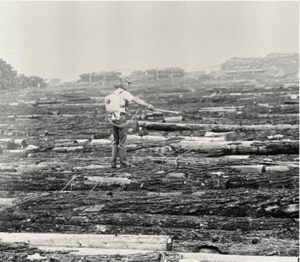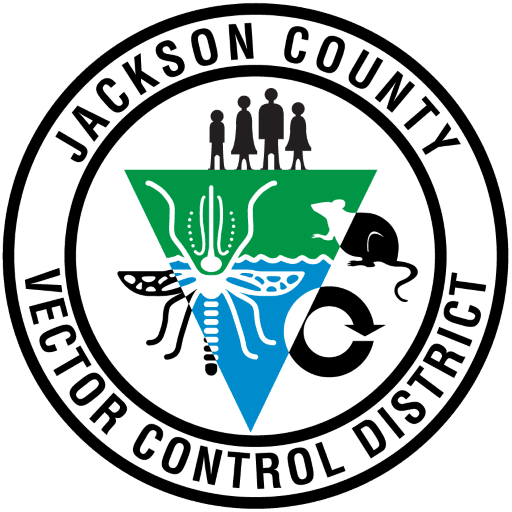History
 The Jackson County Vector Control District (JCVCD) was formed by public vote in 1968 to address significant mosquito problems being experienced by county residents. Our mission is to maintain mosquito populations below nuisance levels and to prevent human infection associated with mosquito-borne diseases. JCVCD is an Oregon Special District acting under state authority outlined in ORS452 and serves all residents of Jackson County. The district has its own tax base and budget and is governed by a Board of Trustees appointed by the Jackson County Board of Commissioners.
The Jackson County Vector Control District (JCVCD) was formed by public vote in 1968 to address significant mosquito problems being experienced by county residents. Our mission is to maintain mosquito populations below nuisance levels and to prevent human infection associated with mosquito-borne diseases. JCVCD is an Oregon Special District acting under state authority outlined in ORS452 and serves all residents of Jackson County. The district has its own tax base and budget and is governed by a Board of Trustees appointed by the Jackson County Board of Commissioners.
During the summer of 1969, JCVCD began locating, mapping, and treating mosquito sources throughout the county such as irrigated pastures, log ponds, and sprinkled log decks. As Jackson County’s population increased, more and more homes were built near these sources causing an increase in human contact with mosquitoes. Over time, certain mosquito sources have declined in the county, primarily due to a shrinking logging industry and the conversion of agricultural lands. However, other source types are increasing, particularly those associated with irrigated pastureland and urban/suburban areas. The regular occurrence of West Nile virus in the county since the first detection in 2004 reiterates the importance of controlling nuisance and disease-vectoring mosquito species.
Training and Education
JCVCD staff are fully licensed by the Oregon Department of Agriculture (ODA) in the application of professional, cutting-edge mosquito control products and are required to abide by all applicable local, state, and federal laws. JCVCD staff receive ongoing training and continuing education to maintain ODA Public Pesticide Applicator licenses. Staff attend annual trainings and conferences for professional pesticide applicators and vector control personnel to stay current on safety information and technical developments. As public employees, staff must also attend yearly trainings for government employees on a variety of topics like public records management, sexual harassment/discrimination prevention in the workplace, and courses on legal and ethical matters.
- American Mosquito Control Association (AMCA) - Provides an opportunity for interaction, continuing education, and cooperation between mosquito and vector control agencies on a national level.
- Mosquito and Vector Control Association of California (MVCAC) - Professional organization that facilitates communication between mosquito and vector control agencies on local and regional control activities and research. MVCAC also provides educational and training opportunities to help vector control district employees maintain licensing requirements and serves as a conduit for regulatory agencies and lawmakers.
- Northwest Mosquito and Vector Control Association (NWMVCA) - Serves Alaska, Idaho, Montana, Oregon, Washington, and the Canadian Provinces of Alberta, British Columbia, and Saskatchewan. This association has approximately 200 members who share information ranging from operational control to university research.
- Oregon Mosquito and Vector Control Association (OMVCA) - Facilitates cooperation among agencies that provide mosquito and vector control in the state of Oregon and to develop and effectively disseminate information between them.
- Pacific Southwest Center of Excellence in Vector-Borne Diseases (PACVEC) - PACVEC strengthens the capacity to prevent and respond to emerging vector-borne diseases.
- Special Districts Association of Oregon (SDAO) - SDAO was formed in 1979 to give special districts a stronger and more united voice at the Oregon Legislature. SDAO provides advocacy with state administrative agencies and other units of government, training, information resources, and other support programs.
- The Society for Vector Ecology (SOVE) - Provides communication and access to research on vector-related topics and research from around the world.
